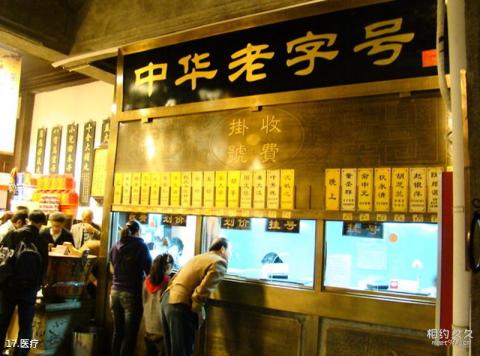
Medical introduction: In the history of Pinghu, seeking medical treatment mainly relied on traditional Chinese medicine. Medical practitioners were commonly known as "Mr. Langzhong" or "Mr. Langzhong". They were all privately engaged. They usually practiced medicine or received medical treatment in the hall with their surnames. , passed down from generation to generation, there are also those who do both medicine and sitting in the hall. At the beginning of the ninth year of the Republic of China, private Western medicine clinics appeared, and they were called doctors. Patients are referred to as "seeing a doctor" or "prescribing" for treatment. In rural areas, there are doctors who practice medicine from house to house and can prescribe some earth remedies, folk remedies, reading (pediatric massage), scraping, and sha treatment.
Historically, there have been many famous doctors and specialty specialties in Pinghu, some of which have been passed down to this day. According to records, Wu Yue in the Ming Dynasty was famous in the southeast. He was recruited by the imperial court as the envoy of the Taiyuan Hospital. He was outstanding in treatment and was awarded three gold coins by Emperor Xizong; In the Qing Dynasty, Mao Zhongying treated warm heat without restricting old methods; Shen Zhiyu, who studied ulcers, wrote the "Yangbian Suibi"; Lu Xiaoyuan's acupuncture was passed down by the "Huanglong Claw Method"; Wang Xuesu read a lot of books and had a deep understanding of pulse. Make good use of ancient prescriptions; Ge Chaorong's Pediatrics has been passed down from generation to generation since the Qianlong period, and has gone through seven generations. He is the author of "Instructions for Infant Care", and "Ge's Pediatrics" enjoys a high reputation to this day; Yan Yaorong is good at treating suppuration, and his The method is effective in treating dysplasia, chronic tracheitis, asthma, chronic diarrhea, bloating and other diseases. He created an original method of treating winter diseases in summer and passed it down from generation to generation. It is well-known in northern Zhejiang and southern Jiangsu and still remains today. During the Republic of China, Wang Xinkun, Xi Kejie, Jiao Zuolin, and Dai Yingchu were in the Department of Internal Medicine; Zhao Jinrong was in the Department of Surgery; Yuan Jinrong was in the Department of Traumatology; Cheng Yushi was in the Department of Gynecology;
